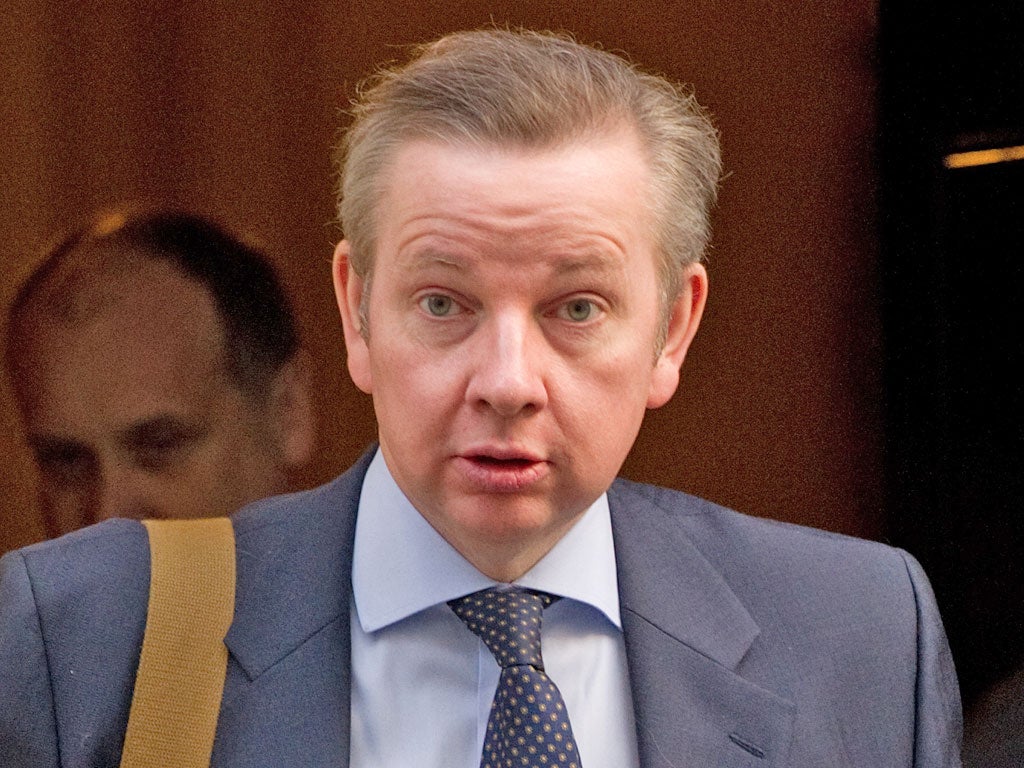Biggest ever fall in top grades 'is the result of pressure from Gove'

Your support helps us to tell the story
From reproductive rights to climate change to Big Tech, The Independent is on the ground when the story is developing. Whether it's investigating the financials of Elon Musk's pro-Trump PAC or producing our latest documentary, 'The A Word', which shines a light on the American women fighting for reproductive rights, we know how important it is to parse out the facts from the messaging.
At such a critical moment in US history, we need reporters on the ground. Your donation allows us to keep sending journalists to speak to both sides of the story.
The Independent is trusted by Americans across the entire political spectrum. And unlike many other quality news outlets, we choose not to lock Americans out of our reporting and analysis with paywalls. We believe quality journalism should be available to everyone, paid for by those who can afford it.
Your support makes all the difference.The class of 2012 recorded the biggest drop in top grades in the history of A-levels yesterday – the first for 20 years – prompting angry claims from teachers that exam boards have succumbed to political pressure to reverse grade inflation.
Thousands of teenagers missed out on their first-choice degree courses as they scored lower than expected grades due to a fall in average marks, universities said. Exam boards are bracing themselves for a flood of appeals.
The results of the 335,000 candidates who sat the exams showed the percentage of A-grades awarded had dipped from 27 per cent to 26.6 per cent. The percentage of A* grade passes also fell from 8.2 per cent to 7.9 per cent, but boys outperformed girls for the first time since the introduction of the grade.
The fall comes against a background of the Education Secretary, Michael Gove, warning of the dangers of grade inflation and "dumbing down" of exams. The exams regulator Ofqual has meanwhile indicated that grades and pass rates should be "roughly" the same as last year.
Teachers queried the fall. "Yet again it appears that outcomes are being manipulated to suit the Government's agenda," said Ian Toone, education officer of Voice, the "no strike" teachers' union.
"The official explanation is that this year's cohort is weaker but this flies in the face of interference from the Government and... Ofqual, which have taken deliberate steps to curb so-called 'grade inflation' by introducing more rigorous rules which have effectively capped the proportion of higher grades that can be awarded. There is a risk that such interference by Government may cause people to lose confidence in the qualifications system."
Academics had to look back two decades for the last time top grades dropped – and then it was only 0.1 percentage points to 11 per cent in 1991. Education experts said they could not recall a bigger drop in the 50-year history of awarding grades at A-level.
Dr Mary Bousted, general secretary of the Association of Teachers and Lecturers, said: "We hope this year's grades are a true reflection of how well students have done and that none of the results have been downgraded in an attempt to make A-levels look tougher."
Exam boards insisted they had done "nothing different" this year. They said that this year's cohort could have been weaker than previous years as a result of more teenagers staying on at school after 16 because of the lack of job prospects.
Join our commenting forum
Join thought-provoking conversations, follow other Independent readers and see their replies
Comments